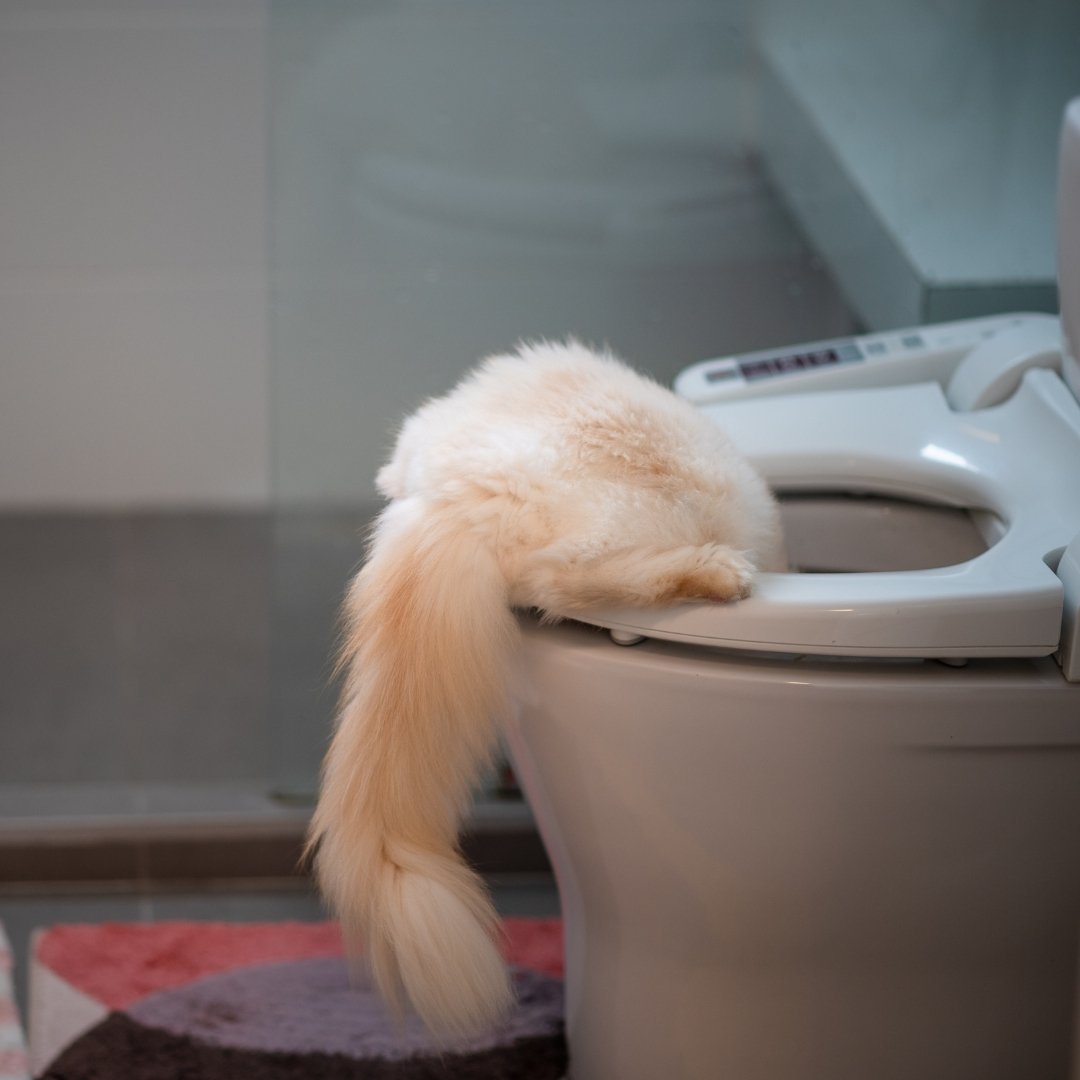Why You Should Never Flush Cat Poop Down Your Toilet - Important Information
Why You Should Never Flush Cat Poop Down Your Toilet - Important Information
Blog Article
We've encountered this great article on Don’t flush cat feces down the toilet down the page on the net and figured it made good sense to discuss it with you in this article.

Intro
As cat proprietors, it's necessary to be mindful of how we throw away our feline good friends' waste. While it might seem practical to flush cat poop down the bathroom, this technique can have damaging effects for both the environment and human health.
Alternatives to Flushing
Fortunately, there are much safer and more responsible ways to dispose of pet cat poop. Consider the complying with alternatives:
1. Scoop and Dispose in Trash
The most common approach of taking care of pet cat poop is to scoop it right into an eco-friendly bag and throw it in the garbage. Be sure to make use of a dedicated trash scoop and dispose of the waste promptly.
2. Usage Biodegradable Litter
Select naturally degradable feline trash made from materials such as corn or wheat. These litters are environmentally friendly and can be safely thrown away in the garbage.
3. Bury in the Yard
If you have a yard, think about burying pet cat waste in a designated location away from vegetable gardens and water sources. Make sure to dig deep adequate to prevent contamination of groundwater.
4. Mount a Pet Waste Disposal System
Invest in a family pet garbage disposal system particularly made for pet cat waste. These systems use enzymes to break down the waste, minimizing smell and ecological impact.
Wellness Risks
Along with ecological concerns, flushing cat waste can likewise posture wellness dangers to people. Cat feces might consist of Toxoplasma gondii, a parasite that can create toxoplasmosis-- a potentially extreme disease, specifically for pregnant women and individuals with damaged immune systems.
Environmental Impact
Flushing pet cat poop presents hazardous microorganisms and bloodsuckers into the water, posturing a substantial threat to aquatic ecological communities. These contaminants can negatively impact marine life and compromise water high quality.
Conclusion
Accountable pet dog ownership extends past providing food and sanctuary-- it additionally entails appropriate waste monitoring. By refraining from purging feline poop down the bathroom and choosing different disposal approaches, we can decrease our ecological footprint and secure human health.
Why You Should Never Flush Cat Poop Down the Toilet
A rose by any other name might smell as sweet, but not all poop is created equal. Toilets, and our sewage systems, are designed for human excrement, not animal waste. It might seem like it couldn’t hurt to toss cat feces into the loo, but it’s not a good idea to flush cat poop in the toilet.
First and foremost, assuming your cat uses a litter box, any waste is going to have litter on it. And even the smallest amount of litter can wreak havoc on plumbing.
Over time, small amounts build up, filling up your septic system. Most litter sold today is clumping; it is made from a type of clay that hardens when it gets wet. Ever tried to scrape old clumps from the bottom of a litter box? You know just how cement-hard it can get!
Now imagine just a small clump of that stuck in your pipes. A simple de-clogger like Drano isn’t going to cut it. And that means it’s going to cost you big time to fix it.
Parasitic Contamination
Believe it or not, your healthy kitty may be harboring a nasty parasite. Only cats excrete Toxoplasma in their feces. Yet it rarely causes serious health issues in the cats that are infected. Most people will be fine too if infected. Only pregnant women and people with compromised immune systems are at risk. (If you’ve ever heard how women who are expecting are excused from litter cleaning duty, Toxoplasma is why.)
But other animals may have a problem if infected with the parasite. And human water treatment systems aren’t designed to handle it. As a result, the systems don’t remove the parasite before discharging wastewater into local waterways. Fish, shellfish, and other marine life — otters in particular — are susceptible to toxoplasma. If exposed, most will end up with brain damage and many will die.
Depending on the species of fish, they may end up on someone’s fish hook and, ultimately on someone’s dinner plate. If that someone has a chronic illness, they’re at risk.
Skip the Toilet Training
We know there are folks out there who like to toilet train their cats. And we give them props, it takes a lot of work. But thanks to the toxoplasma, it’s not a good idea.

We had been shown that editorial about Can You Flush Cat Poop Down The Toilet? through an acquaintance on a different domain. In case you liked our blog posting please remember to pass it around. Thanks a bunch for your time. Visit us again soon.
Click Here Report this page